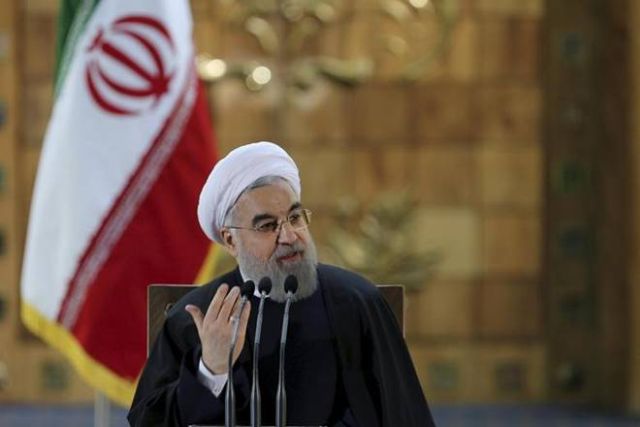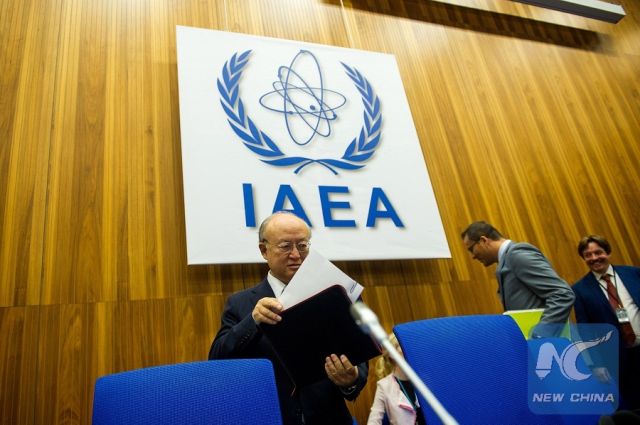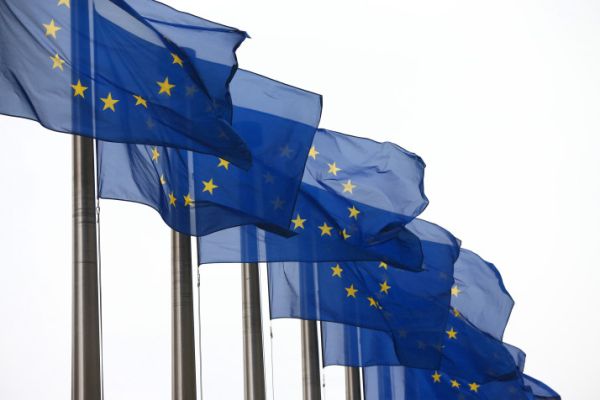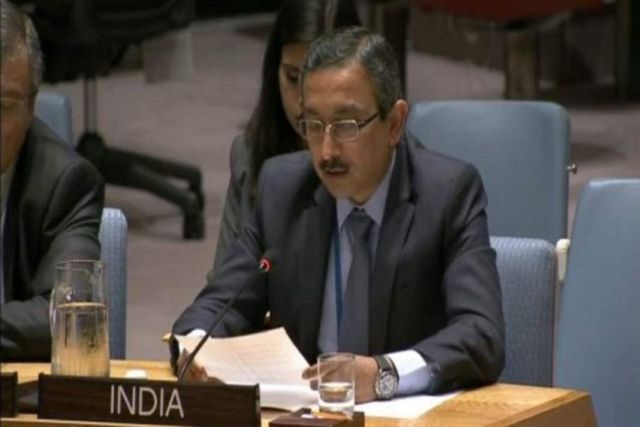
by Editor | May 25, 2021 | Muslim World

Hassan Rouhani
Tehran : Accusing the US of trying to push India away from Iran, Iranian President Hassan Rouhani said on Tuesday that Washington cannot stop Tehran from exporting oil and warned that no crude will be exported from the Persian Gulf if Iranian oil sales were blocked.
The US has re-imposed its unilateral sanctions on Iran, including an oil embargo, after withdrawing in May from the landmark 2015 nuclear deal between Tehran and major world powers earlier in defiance of international objections.
Washington had initially vowed to reduce Iran’s oil sales to “zero”, but later backed down and granted waivers to almost all of Tehran’s major crude buyers.
“The US should know (this) that we sell and will sell our oil and it will not be able to block Iran’s oil exports. And it should also know that if it attempts to stop Iran’s oil (sales) someday, no oil will be exported from the Persian Gulf,” Rouhani said during a speech in Semnan province’s Shahroud city.
“We will expand our relationship with neighbours, the Muslim countries and the world,” Rouhani was quoted as saying by Press TV.
He added that the US was trying to push Europe, China and India away from Iran and “spread Iranophobia in the region”.
Rouhani said that “Washington always suffered defeat in its several hostile plots against Iran”.
He added that all countries “condemned Washington’s sanctions on Tehran, the US was defeated in the UN Security Council and the International Court of Justice (ICJ) in The Hague” over the issue.
The Iranian leader also took an aim at Tel Aviv, saying that “the US and Israel cannot tolerate the existence of a powerful Tehran” and added that the his country would never bow to them.
—IANS

by Editor | May 25, 2021 | Muslim World

IAEA chief Yukiya Amano
Vienna : The International Atomic Energy Agency (IAEA) on Thursday confirmed that Iran is sticking to the 2015 nuclear accord.
In a report of IAEA chief Yukiya Amano to a board meeting in Vienna, the capital of Austria, the agency said that under the monitor of IAEA, Iran is still complying with the Iranian nuclear accord reached in July 2015, Xinhua reported.
“Iran is implementing its nuclear-related commitments under the Joint Comprehensive Plan of Action (nuclear deal). It is essential that Iran continues to fully implement those commitments,” said the report.
IAEA plays a key role in monitoring the implementation of the Iranian nuclear deal, under which, Iran agreed to significantly scale back its nuclear plan, giving more transparency of its atomic plan to the international society, in return, the related international sanctions are to be lifted.
However, Washington withdrew from the landmark nuclear deal in May, and imposed second batch of sanctions against Tehran in early November, targeting Iran’s shipping, financial and energy sectors.
Tehran has dismissed US sanctions’ pressures, saying that it will continue its “constructive role” concerning regional policies.
—IANS

by Editor | May 25, 2021 | World
 By Ayhan Simsek,
By Ayhan Simsek,
Berlin: Germany vowed on Monday to continue legitimate business relations with Iran under European Union law, despite the U.S. move to reimpose tough sanctions on Iran.
Speaking at a press conference in Berlin, government spokesman Steffen Seibert said Germany regretted the U.S. withdrawal from the Joint Comprehensive Plan of Action (JCPOA) agreement, known commonly as the Iran nuclear deal.
In May, U.S. President Donald Trump unilaterally withdrew his country from the landmark nuclear deal signed in 2015 between Iran and the P5+1 group of nations (the five permanent UN Security Council members plus Germany).
“In close coordination with our European partners, we are monitoring developments and examining options on how to protect the economic basis of this agreement and protect our companies,” he said.
“Under EU law, legal business with Iran should continue to be possible,” he stressed.
Washington announced on Monday new sanctions targeting Iran’s energy and and financial sectors along with its shipping industry. More than 700 individuals, entities, aircraft, and vessels were blacklisted, including 50 Iranian banks and their domestic and foreign subsidiaries.
—AA

by Editor | May 25, 2021 | News

Tanmaya Lal
By Arul Louis,
United Nations : Facing the prospects of US sanctions over its deals with Russia and Iran, India has used the annual General Assembly debate on Washington’s economic blockade of Cuba to lash out against unilateral embargoes.
“As the world’s largest democracy with abiding faith in multi-lateralism, India stands in solidarity with this Assembly in its unambiguous rejection of domestic laws having extraterritorial impact,” Tanmaya Lal, India’s Deputy Permanent Representative, said on Wednesday.
Year after year, the General Assembly has voted for lifting the sanctions on Cuba and last year 191 of the 193 UN members backed the resolution with only the US and Israel opposing it.
India has always opposed the Cuban sanctions.
“Every year this Assembly has rejected the imposition of laws and regulations with extra-territorial impact and all other forms of coercive economic measures that hurt the progress and prosperity of the people the world over,” Lal said.
The Cuban sanctions do not directly affect countries like India that trade with Havana.
Although the US embargo mostly restricts engagement by American companies and individuals with the Caribbean country, it does have spillover effects on companies from other countries.
India and most countries oppose the Cuban embargo on principle and maintain that domestic laws should not have extra-territorial effect on other countries.
Only the Security Council can impose international sanctions under the UN Charter as it has done, for example with North Korea.
The General Assembly has called on countries “to refrain from promulgating and applying and to repeal and invalidate laws and measures that have extra-territorial effects affecting the sovereignty of other States, in conformity with their obligations under the UN Charter and international law”, Lal said.
The US has warned India it could face sanctions under its domestic law, the Countering America’s Adversaries Through Sanctions Act (CAATSA), for a deal to buy an advanced air defence missile system, the S400, at an estimated cost of about $5 billion from Russia and other defence purchases.
Mainly motivated by alleged Russian interference in the 2016 presidential elections, the US Congress enacted CAATSA that President Donald Trump signed into law.
While that law also has some impact on Iran, Trump has separately acted to impose more stringent sanctions on countries trading with Tehran after reneging the agreement signed by the five permanent members of the UN Security Council and Germany and the European Union with Iran to end its quest for nuclear weapons.
The Iran sanctions that come into force on November 4 that could hit India, which buys oil from Tehran and has several projects there like the Chabahar port development.
Trump could exempt India from the sanctions, but has not said so far if he would.
Scores of countries that spoke during the debate attacked the sanctions on Cuba and demanded that they be lifted.
Representatives of the Non-Aligned Movement and the Group of 77, as well as regional groups like those representing Latin America, the Caribbean and Southeast Asia called for lifting of the sanctions.
(Arul Louis can be reached at arul.l@ians.in and followed on Twitter @arulouis)
—IANS

by Editor | May 25, 2021 | Business Summit, Events, Muslim World, Social Round-up
 By Muhammet Kursun,
By Muhammet Kursun,
Tehran: Iran held a high-level meeting on Wednesday to discuss regional security and cooperation against terrorism.
Top officials from Russia, China, India and Afghanistan attended the “Dialogue for Regional Security” meeting in the capital Tehran.
Ali Shamkhani, the secretary of Iran’s Supreme National Security Council, welcomed Russian Security Council Secretary Nikolai Patrushev, Afghan security adviser Hamdullah Mohib, India’s Prime Ministry security advisor Ajit Doval, and China’s Dan Ching Wi.
In a speech, Shamkhani spoke out against foreign interference in the region, saying that the region itself should provide regional security.
Patrushev, for his part, said: “The U.S. military presence in Afghanistan has not yet managed to bring stability and has deepened the security crisis.”
Mohib stated that an effective fight against terrorist groups in Afghanistan is impossible as long as they get financial and arms support from overseas.
Doval argued that terrorists empowering themselves through drug trafficking in Central Asia shows that the issue should be taken seriously.
Chinese official called for joint efforts for cooperation in information-sharing and establishing a database on terrorism. Wi said China is ready to mobilize the Shanghai Cooperation Organization for an anti-terror campaign.
In the meeting’s final declaration, foreign interference, drug trafficking, and terrorism were underlined as factors that threaten regional economic and social development. Radicalism and violence were also identified as sources of terrorism.
—AA





